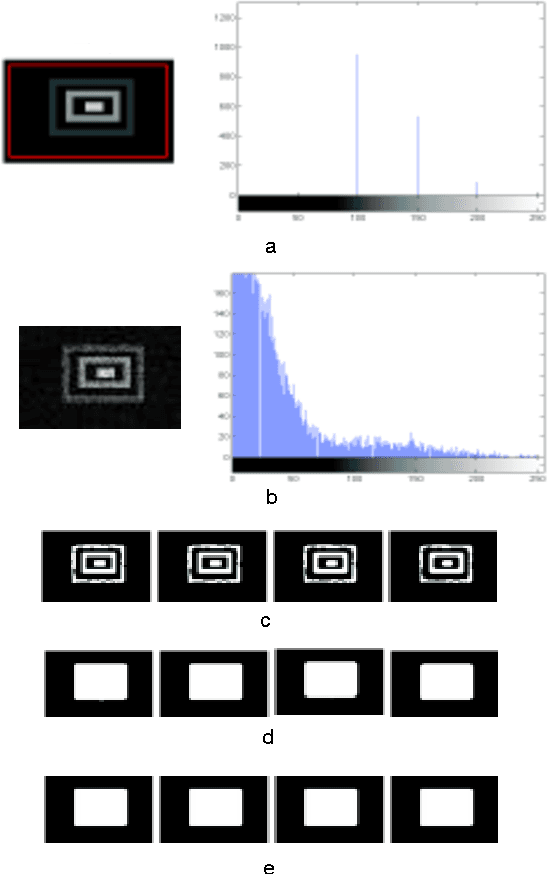Regional Active Contours based on Variational level sets and Machine Learning for Image Segmentation
Paper and Code
Oct 31, 2015



Image segmentation is the problem of partitioning an image into different subsets, where each subset may have a different characterization in terms of color, intensity, texture, and/or other features. Segmentation is a fundamental component of image processing, and plays a significant role in computer vision, object recognition, and object tracking. Active Contour Models (ACMs) constitute a powerful energy-based minimization framework for image segmentation, which relies on the concept of contour evolution. Starting from an initial guess, the contour is evolved with the aim of approximating better and better the actual object boundary. Handling complex images in an efficient, effective, and robust way is a real challenge, especially in the presence of intensity inhomogeneity, overlap between the foreground/background intensity distributions, objects characterized by many different intensities, and/or additive noise. In this thesis, to deal with these challenges, we propose a number of image segmentation models relying on variational level set methods and specific kinds of neural networks, to handle complex images in both supervised and unsupervised ways. Experimental results demonstrate the high accuracy of the segmentation results, obtained by the proposed models on various benchmark synthetic and real images compared with state-of-the-art active contour models.
 Add to Chrome
Add to Chrome Add to Firefox
Add to Firefox Add to Edge
Add to Edge